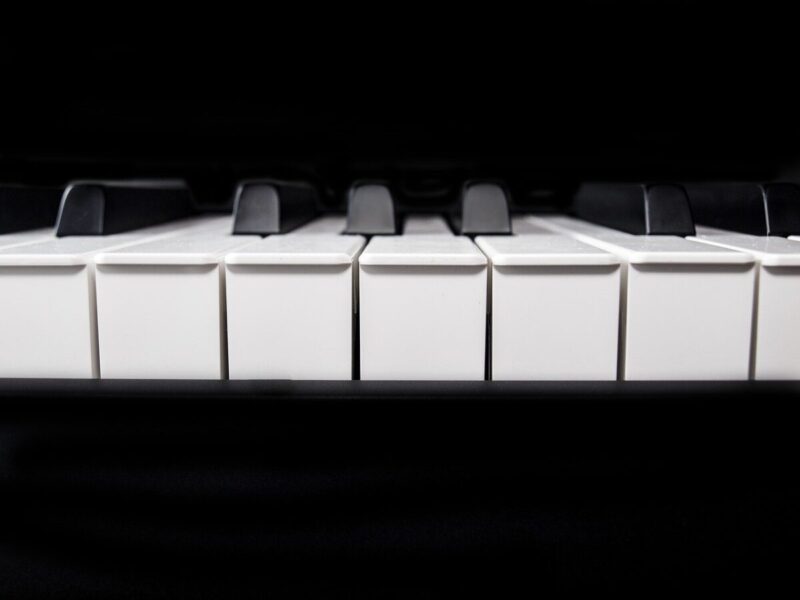How to Play Piano: A Handbook for Beginners
The piano is an instrument that is present in the most diverse musical styles, and not by chance, many people have the desire to know how to play the piano. Whether you are someone who was born with a gift, or just someone who appreciates the art of music and wants to become a musician (professional or not), the piano universe is absolutely within your reach. Even though it takes years of study to be a master of music, the biggest difficulty for someone who wants to learn the basics of playing the piano is less related to their skills than to organize and establish a routine of practices that require some time and dedication . For a beginner, it is absolutely possible to learn to play the piano in a self-taught way, as long as you have the disposition and a little discipline. That’s why we’ve organized this handy beginner’s manual to help you learn the basics of playing the piano independently.
Get to know the piano keys:
First of all, you need to know the instrument you are going to learn. To get started, you need to know the name of notes, how to locate them on the piano keyboard, and how your fingers will move across your keys, numbering them correctly. Developing piano posture and learning correct techniques is also essential to avoiding injuries and improving movement execution. Here is the Digital Piano List You might be interested in.
Know the position of the hands on the Piano:
In the beginning, it’s normal to have difficulty playing with both hands simultaneously, or to have trouble performing chord alternations – a very common complaint for those just learning to play the piano. It is necessary to know how to correctly position the hands on the piano, and for that the fingers are numbered from 1 to 5, so that: 1- thumb; 2 – indicator; 3- medium; 4 – ring; 5 – pinky (this goes for both hands).
Learn piano scales:
To acquire technique and confidence it is essential that you learn the scales on the piano. Start with some typing exercises to develop elasticity and coordination with your right and left hands. For example, you can exercise one hand at a time, and then try doing the exercise with both hands.
Learn Piano Chords:
Even for beginners it is impossible to escape from music theory, especially for those who are eager to create their own compositions. Chords, as well as scales, are as fundamental as for a concrete learning. From simpler three-note chords ‒ as, triads ‒ to more complex chords, the larger your repertoire, the better your ability to memorize songs and improvise.
Understand how to read sheet music
Don’t be afraid to learn to read sheet Music. This knowledge will help you to perform more difficult compositions that you haven’t been able to memorize and will open the doors to a musical universe. There are many tutorials available on how to read sheet music that can help with this learning.
Develop Your Memorization Ability:
The versatility of the piano allows us to permeate different musical genres. You can start with simpler and more memorable compositions and then move on to more complex songs, or those that are to your musical taste. The important thing is to work your memory so that your repertoire grows as you progress with the instrument. Each new song will bring you more knowledge about composition, theory, and it will be very enjoyable!
Create a Practice Routine:
It is important to have a set time for your piano practice and rehearsals. Without it, it is practically impossible to achieve satisfactory results. Training is crucial to your development as a pianist. Set goals according to your needs. It is not necessary to overextend yourself and make it a pain, but be sure to practice your exercises.
Be friends with the metronome:
The metronome will be your great ally in developing your rhythmic skills. It helps you not to get confused between bars and lose the tempo of the song. At first it can be a little irritating to have to follow that “tec, tec, tec”, but with time you get used to it.
Get Inspired:
Look for artists that inspire you. Look for references from pianists, songs that interest you according to your level of learning. Select some artists that you like and study them further. This can be a good motivation for you to dare more and more in your repertoire.
How to play the Piano? Ringing!:
What is perhaps obvious, but not least, the biggest secret to becoming a pianist is to practice, practice and… Practice whenever you can, after all, if practice makes us perfect, error makes us excel. Be persistent and be patient. With a dose of discipline, love and dedication you will be able to reproduce a good musical repertoire.
By following the tips we have separated in this material, it is very likely that you will achieve good results in a reasonable amount of time. Once you’re more familiar with your instrument, check out this other article on how to play octaves on the piano and share your experiences by leaving a comment.






